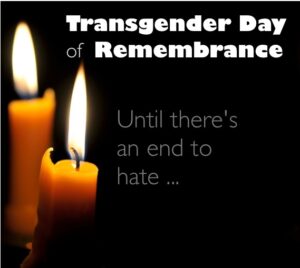 Amid significant discussions about how churches relate to LGBT people, many people wonder whether churches that teach traditional sexual ethics can love LGBT people well. Part of the question relates to how people understand the term traditional sexual ethics, but a bigger part of the question concerns the lived witness of churches towards their LGBT congregants.
Amid significant discussions about how churches relate to LGBT people, many people wonder whether churches that teach traditional sexual ethics can love LGBT people well. Part of the question relates to how people understand the term traditional sexual ethics, but a bigger part of the question concerns the lived witness of churches towards their LGBT congregants.
For the sake of having a working definition, let’s say a traditional church is a community that teaches marriage as a fantastic, awesome, and inspiring union of a man and a woman focused on establishing a family.
Unfortunately, many traditional churches are best known for their political activities rather than their love and care for their community. So we decided to make some suggestions for traditionally-minded Christians. We’d welcome continued dialogue with any traditionally-minded Christian who wants to take us up on our suggestions.
1. Commit to walking with people, not presuming that you have all of the answers. Listen far more than you speak, feeling the full weight of the power of words to destroy souls. So many pastoral challenges begin when pastors fail to appreciate that LGBT people are first and foremost people. Walking with a person involves sitting down together, establishing relationship, sharing vulnerably, and coming to places of trust. Realize that many LGBT people have been harassed and maligned by so many others, especially Christians. Watch what you say from the front of your congregation, especially during times and seasons where it seems absolutely fitting to teach about marriage and sexuality.
2. For the love of God, please don’t make saying the sentence “I’m gay” (or any other LGBTQ variant) the unforgivable sin in your congregation. Words are words, and they have the meaning we ascribe to them. Conservative Christian, please take time to ask what particular people mean when we describe ourselves as LGBTQ. Constantly demanding that queer folk censor our language at all times causes us to wonder if it’s possible to share our lives with you. Humble yourself and say, “I’m really not quite sure what you mean when you say that. Could you help me understand better?” Sure, some people navigating questions of sexual orientation and gender identity might not feel comfortable with using LGBTQ language, but don’t force others to make the same choice.
3. Investigate what your Christian tradition teaches about celibacy. Find positive, negative, and neutral views on celibate vocations. There’s a reason why this point comes third in our list of suggestions. We know so many traditional churches that have never had an honest discussion about celibate ways of life. Celibate vocation is not a shorthand for sexual abstinence; it’s a way of living. If you can’t comprehend what celibate vocations might look like, then you will likely try asking LGBTQ people to live into identically the same counsel as cisgender, heterosexual people when it comes to sexual morality. [Cisgender is a word that means not transgender. Cisgender people have a gender identity that aligns with their sex assigned at birth.] Without rigorously investigating your Christian tradition’s teachings on celibacy, you’re likely to assume that LGBTQ people just need to meet the right opposite-sex person to marry or do not need any support living into celibate vocations.
4. Seriously examine how your Christian tradition understands marriage. We’re admittedly coming at this question from an LGBTQ perspective, but sometimes it’s hard to see what makes marriage such a big deal in particular churches. So many heterosexuals seem to get married using designer services that say little about being called into a married way of life. It’s worth asking questions: Are there must-have and non-negotiable parts of a wedding service at your church? What do those essentials proclaim about the nature of marriage? Are those the right messages to send? For example, many Christian traditions regard “giving away the bride” as an essential part of a wedding service. However, this practice has questionable Christian pedigree because of how it’s been used to reinforce the idea that women are property
5. Call on all parents to love their children unconditionally, making a point to specifically and explicitly discuss LGBT kids. This point is an absolute must. Too many Christians have advocated for “tough love” approaches where a child becomes expendable the instant he or she comes out as LGBT. Parents should be the ultimate safety net for their children. If parents cite something taught in your church as a basis for cutting off their relationship with their LGBT kids, then we hope you would get on with the work of public repentance stat. No parent should be forced to choose between their kid and their faith.
6. Get to know, and support the work of, community organizations working to serve LGBT kids when their parents fail to walk alongside of them. Any child who does not experience unconditional love from his or her parents is going to have a really hard time. Most kids whose parents cite Christian beliefs as the reason why they can no longer love their children are not going to come banging down the doors of a church asking for help. We’ve been impressed by organizations trying to do the heroic work of loving LGBT kids when parents refuse to do so. We’re grateful for organizations like the Trevor Project and Trans Lifeline. We’ve lost count of the number of people who have found refuge at the Gay Christian Network. There are organizations like LoveBoldly trying to make a difference on a smaller scale. Many local LGBT centers serve as a great touchpoint for finding organizations doing work in your community. Learn about what these organizations are doing, listen to people share their stories, and do what you can to extend tangible expressions of Christ’s love for all people.
7. Pray for yourself, other people in church leadership, and your congregation as a whole. Ask others to pray for you. If you’re still reading up to this point, congratulations. We know far too many traditionally-minded Christians who would give up after reading points 1 and 2, much less get all the way to point 7. Doing this work is hard, and trying to love others without counting the cost will change you. Entreat God to open up the storehouse of wisdom.
8. Ask God to reveal to you any way you have crushed the spirits of LGBT people… and expect to be surprised. No one expects to be the destroyer of souls. No one expects to have blood on their hands. But it happens. It happens all of the time. We’re Christians, but we all too often fail to love with the love of Christ. Repentance is part and parcel of any Christian’s journey. We don’t pretend to know what God will show you when you shine the light of Christ on this area of your witness. We simply want to invite you to pray with the Psalmist “Search me, O God, and know my heart! Try me and know my thoughts! And see if there be any grievous way within me, and lead me in the way everlasting!”
9. Watch “Through My Eyes” and arrange periodic screenings at your church. This video resource is one of the most helpful resources we know of for promoting discussion of LGBT people in your church. It’s produced by the Gay Christian Network and features the stories of over 20 queer young adults. It differs from other resources in that it does not offer any kind of theological apologetic. We know many Christians who’ve found it to be a good way to approach the tough conversations from a place of empathy.
10. Read accounts of celibate LGBT Christians with traditional sexual ethics with an eye towards discerning their different pastoral needs along their journeys. Two of the best known are Washed and Waiting by Wesley Hill and Gay and Catholic by Eve Tushnet. Now, there’s a great temptation to weaponize the stories of celibate LGBT Christians and assert that somehow we’re the “good” gays who should be welcome in churches, while “bad” (sexually active) gays should be shunned absolutely. Resist that temptation with everything in your being. We’ve walked this journey with many, many, many LGBT people. Shoving one of these books (or, for that matter, our blog) in the direction of an LGBT person and asserting that individual can live a celibate vocation is incredibly unfeeling and excuses pastors of their pastoral responsibilities. We recommend these specific books because they are part memoir, where a discerning eye can pick out places where both Hill and Tushnet needed real pastoral support. Could they, and others like them, get that kind of support from your congregation?
11. Talk openly with your church about how you’ve found gaps in how you love LGBT people. Expect a lot of controversy and commit for the long haul. Many of these activities are necessarily public activities. They are activities that invite action. Leading with love requires being visible. We know that it’s not easy.
12. Risk coming out in vocal support for the dignity of LGBT people. One theological tenet guides every suggestion we’ve made: All people are created in the image of God and have a fundamental dignity as children of God. What are you willing to give to proclaim that LGBT people have dignity? How bold are you willing to be?
We consider these suggestions as only the tip of the iceberg. As we write this, we can identify maybe three church communities that attempt to to any of this work. But we have to wonder if there are local churches willing to embrace the challenges and love LGBT people well. Heck, we know many progressive churches that fall short of doing the things we’ve suggested here. We’ve put this stake in the ground because we think the time has come to stop shying away from boldly declaring that LGBT people have dignity and must be treated with respect.
Lindsey and Sarah are a celibate, LGBT, Christian couple. They blog at A Queer Calling, where this article first appeared. It is reproduced here by their kind permission.


